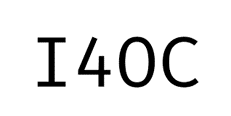Didactic strategies and meaningful learning in Master of Education Management students and University teaching of a faculty education of Lima
Keywords:
Didactic strategies, Controversial discussion, Seminar significant learningAbstract
This research seeks to describe and explain the relationship between teaching strategies and meaningful learning in students of Master of Management of Education and University Teaching 2017-I School of Education UNMSM. The selection of the study sample was made through the technique of simple random sampling. The type of research was basic descriptive, explanatory non-causal relational, the design of the research was non-experimental. For the analysis of data, the Inferential statistics was used and for the processing of the information the statistical program SPSS Version 24 and the Pearson Correlation were used. Results: The Pearson Correlation Coefficient r = 0.56 approximately represents 56% of the data are linearly related between the didactic strategies and the significant learning in the students of. Master of management of education and university teaching 2017-I of the Faculty of Education UNMSM. The results indicated that there is a linear relationship between teaching strategies and meaningful learning in students of the Master of Management of Education and University Teaching 2017-I of the Faculty of Education UNMSM. Therefore the didactic strategy the seminar has a greater direct relation with the significant learning.
References
Andueza, M. (2001) Dinámicas de grupos. MéxicoD.F: Trillas.
Briones, G. (1995). Métodos y Técnicas de Investigación para las Ciencias Sociales. MéxicoD. F.: Editorial Trillas
Domínguez, Z (2011) las. Estrategias didácticas y su relación con el aprendizaje de las ciencias sociales en los alumnos. De primer año de secundaria de la I.E. Miguel Cortés De Castilla (tesis de pregrado) Universidad Nacional de Piura, Perú.
Díaz y Hernández (1999) estrategias docentes para un aprendizaje significativo. México: Mc- Graw Hill
Díaz, F (2002) “Estrategias Docentes para un aprendizaje significativo. México: McGraw Hill. Hernández, R., Fernández y Baptista, P. (2010).Metodología de la Investigación. México: Mc-Graw Hill
Gutiérrez, C. (2011) en su tesis titulada la comprensión lectora inferencial y el aprendizaje significativo de los estudiantes de la facultad de ciencias de la Educación y Humanidades de la Universidad “San Luis Gonzaga de Ica” (tesis de Pregrado) Universidad Nacional Mayor de San Marcos, Perú.
Quispe, J. (2011). El método de la discusión controversial en el aprendizaje de la asignatura de Lenguaje en los estudiantes del II Semestre de Enfermería del Instituto Superior Tecnológi- co Joaquín Retegui Medina, Nauta-2009. Tesis para optar el grado de maestría de facultad de educación. Universidad Nacional Mayor de San marcos
Rodríguez, L. (2004) la teoría del aprendizaje: una revisión aplicable para la educación actual en: Revista electrónica de Investigación Innovación Educativa Socioeducativa Vol.3-1, pp. 29-50
Sanabria, M. (2003) Influencia del seminario y la clase magistral en el rendimiento académico de alumnos de la E.A.P de Economía de UNMSM (tesis de grado) Universidad Nacional Mayor de san Marcos, Perú.
Solé, I. (2001) Estrategias de lectura. Barcelona: Editorial Graò
Velazco, M. y Mosquera. (s.f.). Estrategias Didácticas para el Aprendizaje Colaborativo. PAIEP. Consultado el 12 de abril de 2013, en: http://acreditacion.udistrital.edu.co/flexibilidad/es- trategias_didacticas_aprendizaje_colaborativo.pdf
Downloads
Published
How to Cite
Issue
Section
License
Copyright (c) 2019 PsiqueMag

This work is licensed under a Creative Commons Attribution-NonCommercial-NoDerivatives 4.0 International License.
You are free to:
- Share — copy and redistribute the material in any medium or format
- The licensor cannot revoke these freedoms as long as you follow the license terms.
Under the following terms:
-
Attribution — You must give appropriate credit, provide a link to the license, and indicate if changes were made. You may do so in any reasonable manner, but not in any way that suggests the licensor endorses you or your use.












